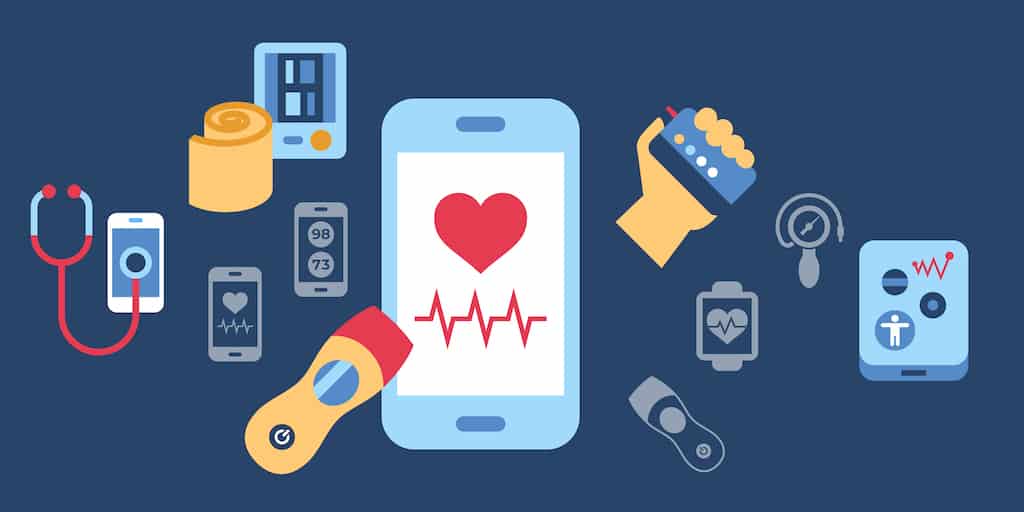
What if a smartphone app could replace your doctor’s waiting room? In 2025, this isn’t science fiction—it’s a daily reality. Healthcare mobile apps are no longer just fitness trackers or medication reminders. They’re reshaping how patients connect with providers, manage chronic conditions, and access life-saving care—anytime, anywhere.
Thanks to the rise of healthcare app development companies, today’s digital health apps integrate powerful features like telemedicine, remote monitoring, AI-powered diagnostics, and secure data management under strict HIPAA compliance. The result? A smarter, faster, and more accessible healthcare system for everyone.
Telemedicine: From Physical Clinics to Virtual Care
Gone are the days when seeing a doctor meant long waits. Telemedicine apps now enable virtual consultations within minutes. Apps like Amwell and Teladoc Health have set the standard, offering round-the-clock video consultations, mental health services, and even therapy sessions—all from a mobile device.
Healthcare systems globally are partnering with healthcare app development companies to create customized mHealth solutions that allow hospitals and clinics to offer remote consultations, improving reach in underserved or rural areas.
Success Story: The Apollo 24|7 app in India reported a 3x increase in teleconsultations between 2023 and 2025, particularly during health crises. With integrated e-prescriptions and lab bookings, patients get end-to-end care without stepping into a clinic.
E-Prescriptions: Fast, Accurate, and Paperless
E-prescription features in patient care apps ensure prescriptions are securely sent directly to pharmacies, minimizing human error and reducing wait times. These are especially vital in chronic disease management where frequent renewals are required.
Apps like MyChart and Practo allow patients to not only receive e-prescriptions but also set medication reminders and track dosage history—streamlining treatment adherence and improving health outcomes.
Remote Monitoring: Real-Time Insights, Real-World Impact
Modern patient monitoring apps enable real-time tracking of vitals such as blood pressure, glucose levels, heart rate, and more. Integrated with IoT devices and wearables, these apps help doctors keep tabs on patients outside clinical settings.
Real-World Example: The Apple Health platform now collaborates with leading hospitals, enabling doctors to receive remote patient data and intervene early in case of abnormalities—reducing hospital readmissions and emergency visits.
AI Diagnostics: Smarter Tools for Faster Care
AI-powered diagnostics in health tech apps can now identify patterns, flag anomalies, and even assist in early disease detection. Mobile platforms like Ada Health and SkinVision use AI to provide symptom assessments, empowering patients to make informed decisions before seeing a physician.
For providers, AI algorithms integrated into medical mobile applications are helping analyze radiology scans, pathology reports, and patient histories to improve accuracy and reduce diagnostic delays.
HIPAA Compliance: Securing Patient Trust
In an era of digital transformation, data security is non-negotiable. The best apps for remote patient care are built to be HIPAA-compliant, ensuring end-to-end encryption, secure user authentication, and patient data protection.
Forward-thinking healthcare app development companies are embedding privacy protocols from the ground up—meeting both local and international data regulations while offering seamless user experiences.
The Road Ahead: Digital Transformation in Healthcare
The future of healthcare apps for patient engagement looks even more promising. As mHealth solutions evolve, expect to see deeper integration with electronic health records (EHR), predictive analytics for preventive care, and expanded use of AR/VR for remote diagnostics and training.
Hospitals and clinics are increasingly investing in custom mobile apps to improve efficiency, patient satisfaction, and care outcomes. In 2025, mobile health apps are not just add-ons—they’re essential tools driving the digital transformation in healthcare.
Final Thoughts
If you’re a hospital, clinic, or startup looking to innovate in patient care, partnering with a healthcare app development company is no longer optional—it’s strategic. With the right blend of functionality, security, and user-centered design, your healthcare mobile app could be the next big breakthrough in how we deliver care.